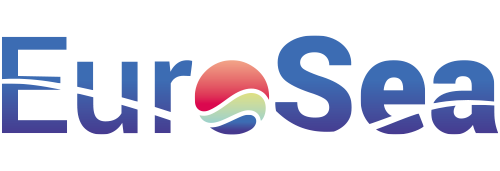
Description
The systematic convening of OC (Operation Committee) and AC (Advisory Committee) meetings underscores a commitment to iterative collaboration, continuous progress tracking, and strategic decision-making for the European Ocean Observing System (EOOS). Such meetings, integral to the project’s framework, foster transparency, and provide avenues for informed deliberations on the way forward. By frequently evaluating the project’s status and aligning with broader objectives, these meetings ensure EOOS remains agile and responsive to evolving needs, thereby setting new benchmarks in marine observatory governance.
Impact During the Project
A number of OC (Operation Committee) and AC (Advisory Committee) meetings were held.
These meetings play a crucial role in driving the progress and ensuring smooth operations.Measure during the project:
Development Tracking: The meetings will be pivotal in supporting and tracking the development of EOOS (European Ocean Observing System) as mentioned in D1.8.
Implementation Assessment: The advancement on the EOOS Implementation Plan will be assessed, and the measure will be based on the concept notes revised by SG in 2021. This will give a clear picture of the progress made in realizing the objectives set out in the plan.
Impact Post Project
The continuity and success of OC and AC meetings are crucial for the ongoing support and sustenance of the EOOS framework post-project.
Measure post project:
Funding Stability: A significant measure of the project’s success post-completion is the stability of forward funding dedicated to the
secretariat support for EOOS. Stable funding indicates the recognized value and the sustainability of the framework.
Membership Willingness: The willingness of other community members to join the EOOS AC (Advisory Committee) is a clear indicator of the
platform’s credibility, usefulness, and potential impact. A growing member base signifies the expansion of influence and recognition of the
platform.
Advancement over and above State of the Art
Structured Development Tracking: Unlike conventional systems where progress might be ad hoc, the systematic tracking of EOOS development through regular OC and AC meetings ensures that the project remains on track and adheres to its objectives.
Adaptive Implementation: With the assessment based on revised concept notes, there’s an element of adaptability. The ability to adjust the course based on new insights or challenges can be seen as an advancement over rigid, non-adaptive systems.
Post-Project Sustainability: The emphasis on post-project sustainability, as indicated by funding stability, is a forward-thinking approach. This ensures that the efforts and progress made during the project have long-term implications and don’t just conclude at the project’s end.
Community Integration: By measuring the willingness of community members to join the EOOS AC, there’s an acknowledgment of the importance of community involvement and endorsement. This community-driven approach can be considered an advancement over closed, non-inclusive systems.
To sum it up, the emphasis on regular meetings (OC and AC), structured development tracking, adaptability, sustainability, and community integration in the EOOS framework represents a significant advancement over the traditional state of the art in ocean observing systems.
